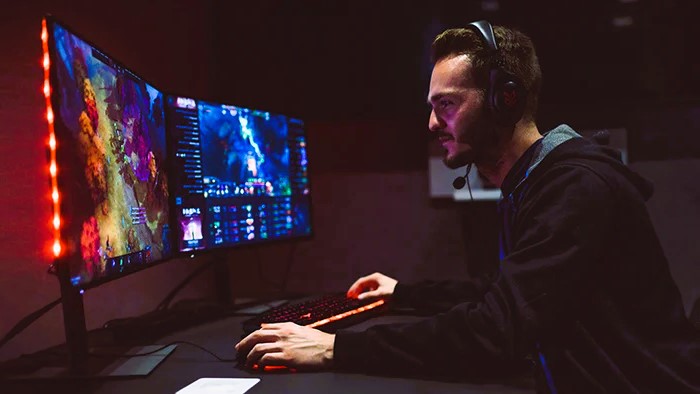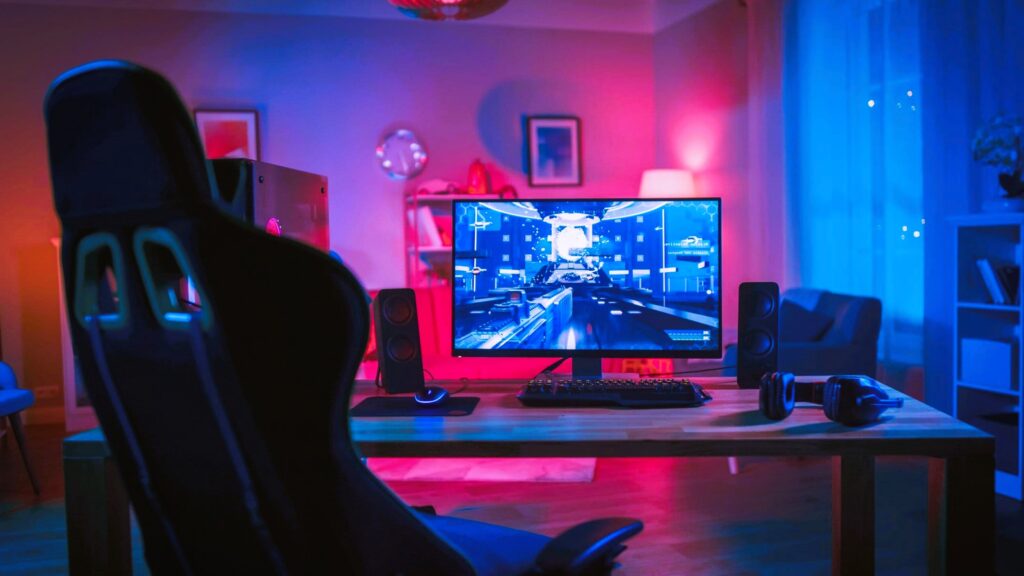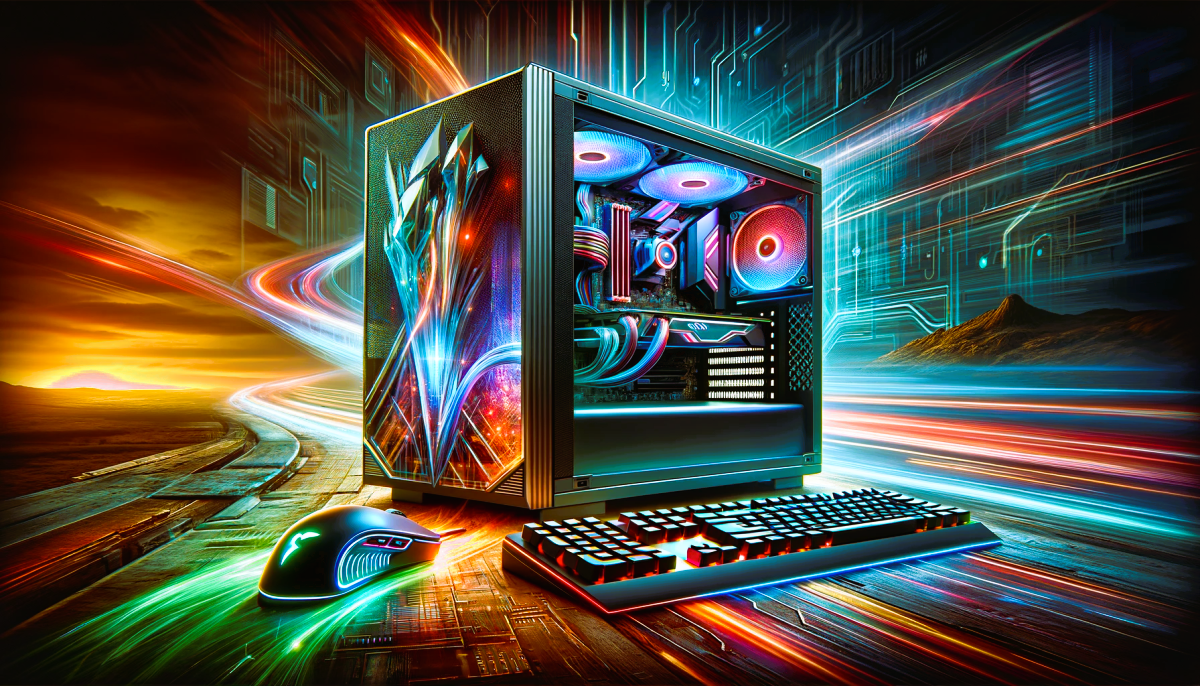Optimizing your PC for gaming performance is crucial to ensure smooth gameplay and a competitive edge. Whether you’re a casual gamer or a serious eSports contender, a well-tuned system can make a significant difference. This guide covers essential steps and tips to help you achieve the best possible performance from your gaming PC.
1. Update Your Graphics Drivers
Graphics drivers play a critical role in the performance of your GPU. Manufacturers frequently release updates that improve performance, fix bugs, and enhance compatibility with new games.
- Check for Updates: Regularly visit the NVIDIA, AMD, or Intel website to download the latest drivers for your graphics card.
- Use Software: Many GPU manufacturers offer software like NVIDIA GeForce Experience or AMD Radeon Software that can automatically check for and install updates.
2. Optimize In-Game Settings

Adjusting in-game settings can help balance performance and visual quality based on your hardware capabilities.
- Resolution: Lowering the resolution can significantly boost performance. However, this may reduce image clarity.
- Graphics Settings: Adjust settings such as texture quality, shadow detail, and anti-aliasing. Lowering these settings can improve frame rates.
- V-Sync and Frame Rate Cap: Enable V-Sync to reduce screen tearing or set a frame rate cap to match your monitor’s refresh rate.
3. Overclock Your GPU and CPU
Overclocking can provide a performance boost by increasing the clock speeds of your CPU and GPU. However, it should be done cautiously to avoid overheating and system instability. Read on for our best tips for choosing gaming headphones.
- Tools: Use software like MSI Afterburner for GPUs and Intel XTU or AMD Ryzen Master for CPUs to adjust clock speeds and voltages.
- Cooling: Ensure your cooling system is adequate to handle the increased heat generated by overclocking.
4. Upgrade Your Hardware
Sometimes, optimizing your PC involves upgrading components to meet the demands of modern games.
- RAM: Upgrading to 16GB or more of RAM can improve performance, especially in memory-intensive games.
- Storage: An SSD provides faster load times compared to an HDD. Consider upgrading to an SSD for your operating system and frequently played games.
- Cooling: High-performance cooling solutions can help maintain stability and performance during intense gaming sessions.
5. Optimize Windows Settings
Windows settings and configurations can impact gaming performance. Adjusting these settings can help improve your system’s efficiency.
- Power Settings: Set your power plan to “High Performance” to ensure your PC uses its full potential.
- Background Processes: Close unnecessary background applications and processes to free up system resources for gaming.
- Game Mode: Enable Windows Game Mode to prioritize gaming performance and reduce background interruptions.
6. Clean Your PC Internally
Dust and debris can accumulate inside your PC, leading to overheating and reduced performance. Regular cleaning helps maintain optimal temperatures and system stability.
- Dusting: Use compressed air to clean dust from fans, vents, and components. Ensure your PC is powered off and unplugged before cleaning.
- Cable Management: Organize cables to improve airflow and prevent obstruction around cooling components.
7. Manage Startup Programs

Programs that start automatically with Windows can consume resources and slow down your system.
- Task Manager: Use Task Manager (Ctrl + Shift + Esc) to review and disable unnecessary startup programs.
- Startup Settings: Go to Settings > Apps > Startup to manage and disable startup applications.
8. Adjust BIOS Settings
Your BIOS (Basic Input/Output System) controls fundamental hardware settings. Adjusting these settings can enhance performance.
- Enable XMP: Enable XMP (Extreme Memory Profile) in BIOS to optimize RAM performance.
- Update BIOS: Check for BIOS updates from your motherboard manufacturer to improve compatibility and performance.
9. Monitor and Benchmark Performance
Regularly monitoring and benchmarking your system helps identify performance issues and gauge the impact of optimizations.
- Benchmarking Tools: Use tools like 3DMark, Unigine Heaven, or Cinebench to test your system’s performance and stability.
- Monitoring Software: Utilize monitoring software like MSI Afterburner or HWMonitor to keep track of temperatures, usage, and performance metrics.
10. Keep Your System Cool
Maintaining proper cooling is essential for stable and efficient performance.
- Cooling Solutions: Invest in high-quality air or liquid cooling solutions to manage temperatures effectively.
- Case Airflow: Ensure your PC case has adequate airflow with intake and exhaust fans to maintain cool operating temperatures.
Additional Resources
For more information on PC optimization and hardware performance, visit Wikipedia’s page on Computer Performance.
Optimizing your PC for maximum gaming performance involves a combination of hardware upgrades, software adjustments, and regular maintenance. By following these steps, you can ensure your system runs smoothly, providing an enhanced gaming experience. Whether you’re tweaking settings, upgrading components, or managing system resources, a well-optimized PC will deliver the performance you need to enjoy your favorite games to the fullest.

